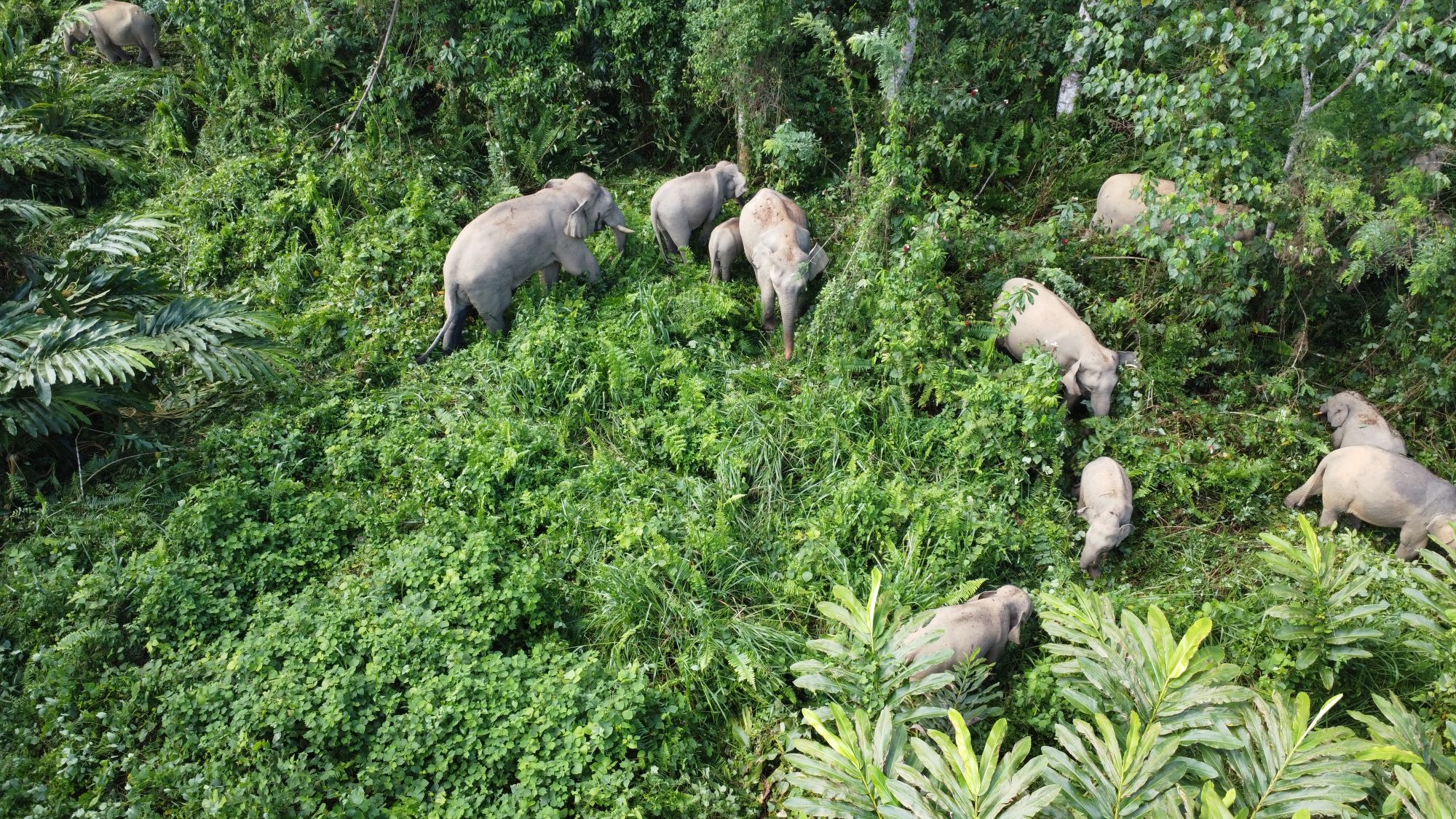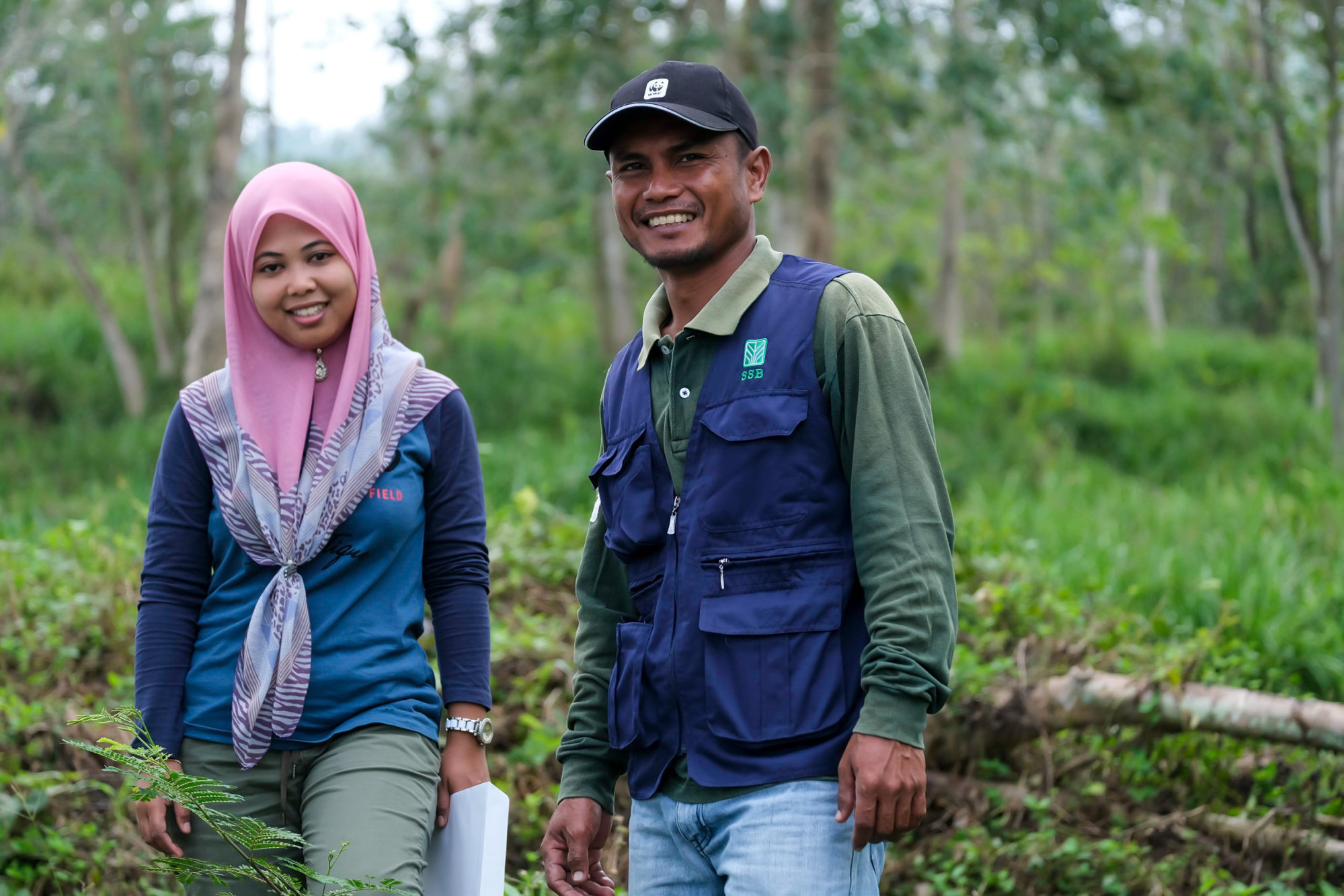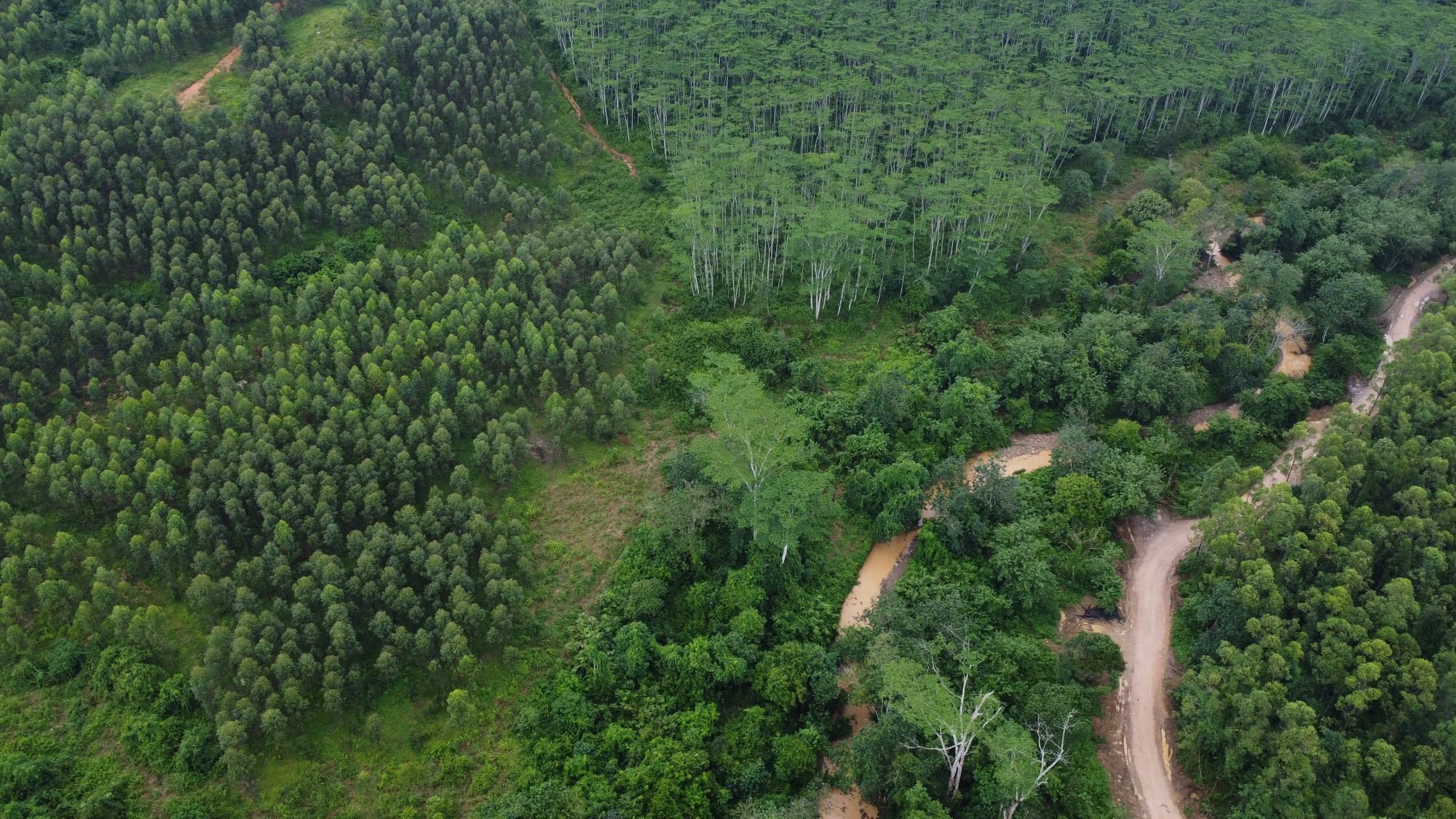
Elephant safaris in a plantation? In Sabah, Malaysia, new project lets tourists and pygmy elephants interact at a distance
- Pygmy elephants are critically endangered and their habitats in Sabah, Malaysian Borneo are being cleared for development, agriculture or commercial logging
- A conservation group and softwood plantation are running elephant safaris and using the income to plant a natural corridor to a nature reserve for the elephants
Standing on the open cargo bed of a Toyota Hilux pickup truck, we rock at every bump in a muddy track that cuts through endless well-tended acacias, eucalyptus and the bulbous sprouts of oil palms.
Behind the wheel, ranger Jamaluddin Pase negotiates every bend in the road as if he were hell-bent on reaching the darkening horizon as fast as possible.
“Be patient,” says Bruneian-Pakistani conservationist Shavez Cheema as he bumps against my right shoulder. “They’re certainly big things, but finding them in such a large area, it’s still a bit like chasing the proverbial needle in a haystack.”
We have been playing this game of hide and seek for the best part of an hour-and-a- half and, to be honest, I am ready to stop believing. But then the car slows and a loud roar smothers the noise of the dying engine.
We freeze, hearts thumping in our chests.
“I told you: it’s rare that we don’t find them,” says Cheema, jumping off the truck, camera in hand.

It’s only when a second, deeper trumpeting resonates beyond the trees ahead of us that we see the elephants advance. A herd of six, a mother with a calf in front.
Keeping our distance as instructed, our group of five marvels at the animals, shutters flickering as the last of the sun’s rays produce an ethereal halo around the animals’ backs, the dark ivory of tusks blending into a background of shrubs and trees.
In Tawau, the biggest city in southeastern Sabah, East Malaysia, conservation has embraced tourism in the oddest of places: a softwood plantation. The goal? To raise revenue to reforest a wildlife corridor and help endangered pygmy elephants find a better home.
Sacred caves, Khmer temple ruin a short ride from Bangkok in Phetchaburi
There are between 1,500 and 2,000 Borneo pygmy elephants left in the world, and they are mostly found in the state of Sabah.
Because of human encroachment, the construction of highways and the rapid rate of deforestation and commercial logging in Borneo, this animal, already on the International Union for Conservation of Nature’s Red List of Threatened Species, has suffered unprecedented habitat loss.
Between 2004 and 2017, the global conservation body WWF recorded the felling of 1.9 million hectares of forest in Malaysian Borneo, amounting to 33 per cent of the total of 5.9 million hectares cut across the island, which Malaysia shares with Indonesia and Brunei, during that period.

The result is that pygmy elephants are forced to find territory and food closer to human settlements, especially in heavily logged and planted areas such as Tawau.
Tragic incidents between humans and elephants do happen – the latest, in September, resulted in an elderly woman being knocked from her motorbike and trampled to death on the fringes of a plantation in Dumpas, Tawau – but pygmy elephants are also slain for their ivory.
At the end of September 2019, one was shot more than 70 times and had its tusks removed by poachers in a Tawau plantation, near the village of Sungai Udin.

A month later, a tuskless elephant carcass surfaced in a Beluran estate, near the city of Sandakan, 300km to the north, where the Kinabatangan river basin provides one of the last natural habitats for the pachyderms.
The pioneer Plant4BorneoElephants project, a collaboration between Tawau-based NGO 1StopBorneo Wildlife and Sabah Softwoods Berhad (a 60,700 commercial tree plantation established on the edge of the city in 1974), is taking concrete steps towards solving the problem.
It’s the first such project in Asia, and possibly the world. After earmarking 7,000 hectares for conservation, the plantation has, since 2018, been welcoming guests to elephant safaris and overnight stays in basic wooden cottages on its land.

The experience is ethical and developed with animal sustainability in mind: the animals must be observed at a minimum distance of 20 metres, and rangers patrol and control the interactions.
“Over the years, we learned that elephants and other iconic Malaysian wildlife need protection, and realised the importance of coexistence,” says Ram Nathan, the head of the Conservation and Tourism unit at Sabah Softwoods.
The plantation’s land is mostly gently undulating, with none of the dense dipterocarp forest that elephants find ideal to roam in, says Ram. “So we allow them to pass through here even though, since 2004, there have been episodes of human-elephant conflict.”

Ram says that the main steps Sabah Softwoods has taken are “the establishment of a long-term wildlife corridor, allowing animal passage in newly planted areas, and reducing the fear and stress of their workers by conducting proper training on the dos and don’ts when they are close to wild elephants”.
Following two years of inactivity because of the Covid-19 pandemic, the plantation management were cautious in reopening safaris to the public, fearing the spread of the virus from visitor to employee.
“This caused a bit of initial disappointment among those who wanted to visit earlier this year,” says Cheema. But reopen the plantation did, in April, and “now Tawau’s elephants are pretty much all waiting with raised trunks”, he quips.
We are pumping money into the local economy, creating jobs, creating value for elephants, and many new trees have been planted as a result
Sightings are likely but never guaranteed.
“We gather GPS tracking of the elephants’ movements from WWF Sabah, who radio-collared some, do a patrol a day before any tourists arrive, and look out for new footprints, faeces, and food traces,” says Jamaluddin. The freshest information, though, comes from staff and plantation workers in the field.
Profits from the safaris help fund the planting of a corridor of native trees and fruit species that will eventually connect Sabah Softwoods’ plantation to the nearby Danum Valley Conservation Area. This will give the elephants and other wildlife a safe passage into one of the state’s last protected primary rainforests.
At Thailand’s Elephant Nature Park, volunteers shovel dung for fun
“The Plant4Borneo projects [were conceived] after brainstorming solutions to the problems that Tawau faces, and as we are already doing similar reforestation work with endangered pangolins and hornbills, we also thought about the many elephants we have in our own backyard,” says Cheema.
“So many of them get in trouble because of conflict in the plantations, while tourists often struggle to see them in the parks, so it all just clicked together; why can’t people go see elephants on a plantation, then?”
Cheema concedes that in the beginning, the disdain with which plantations are viewed by conservationists was a hurdle, but that was quickly overcome by the success of the early tours.

“It’s unique; it has a conservation, educational, economic and enforcement element,” he says. “It is a real game changer in conservation: we are pumping money into the local economy, creating jobs, creating value for elephants, and many new trees have been planted as a result. Everyone is benefiting, including the elephants and other wildlife.”
The next move is to use the project’s successes as an example to inspire other estates in Borneo and other parts of the world that still have elephants.
“We are informing our colleagues in other plantations in Sabah through a series of human-elephant workshops, where we share our experiences and show that there is indeed a potential for plantation tourism,” says Ram.
However, for now, Plant4Borneo seems to be one of a kind, for “not many other plantations have really stepped up their conservation agenda”.

